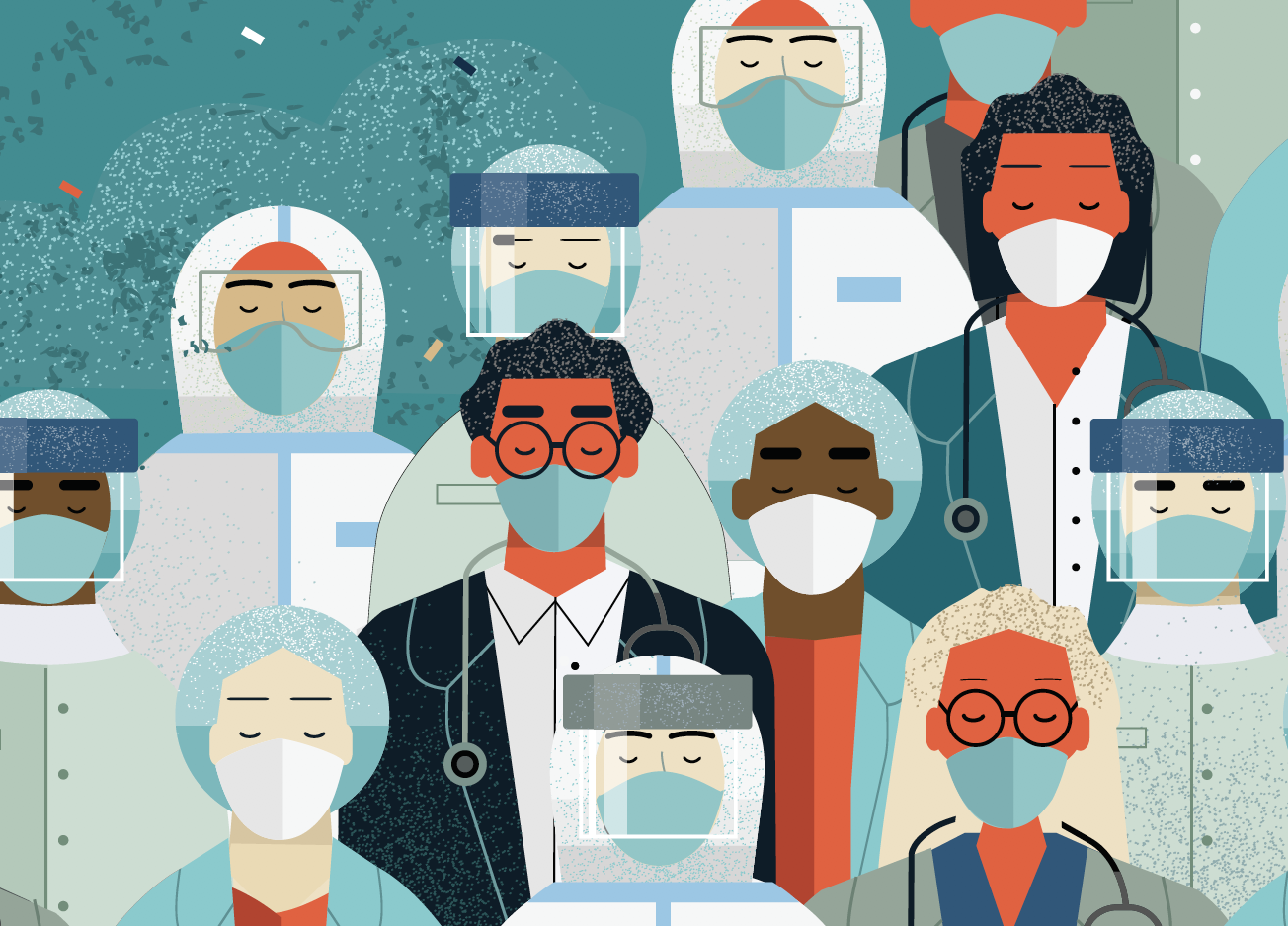The new social contract
The pandemic saw public support for health workers erupt. Now, that support must translate into a clear, enforceable agreement among governments, businesses and working people to protect public health as a priority
The global groundswell of public acclamation of health and other front-line workers as the COVID-19 pandemic hit country after country carries a powerful message for governments, many of which made political choices over the years to restrict crucial investments in health in order to appear fiscally prudent. The warnings of pandemic risk from scientists were clear, but too many governments chose to ignore them, preferring to save rather than invest, at tremendous cost to human life. Healthcare and other front-line workers have paid a heavy price for the lack of preparedness, even having to resort to plastic bin bags or swimming masks for protection, due to the failure of governments to ensure stocks of personal protective equipment. Where investment was lacking, hospitals were quickly overwhelmed.
Although global spending on health has been increasing in recent years, it has obviously been insufficient. Just 126 countries had social health insurance in 2017, and in low-income countries people are expected to pay for health care mostly from their own pockets. Africa has some 22% of the global disease burden, but only 3% of the world’s healthcare workers – a workforce deficit of over 2 million people on that continent alone.
The pandemic has brutally exposed the flaws of the global economic system, in health, employment, social protection, rights to sick leave and virtually every other aspect of the economy. Global polling by the International Trade Union Confederation in 2018 revealed that 59% of working people were only just managing financially, struggling to make ends meet, or going without essentials or falling into debt. And 23% of people felt that their job was insecure.
With the world economy in intensive care, recovery and resilience must be the prime concerns. We need recovery to regenerate jobs and sustainable growth, and resilience to fix the failings and precarity of the current system and to equip the world to deal with new COVID-19 outbreaks and new pandemics along with existing global health challenges.
Massive investment in health, child care, aged care and social protection must be at the core of recovery and resilience. Existing deficits in infrastructure, education, connectivity and other areas must be addressed. Hundreds of millions of jobs, and many more livelihoods in the informal economy, have been destroyed. Job creation needs to be a primary objective of recovery, to meet the vital social and economic needs that existed before the pandemic and have now grown by orders
of magnitude.
Resilience alongside recovery
With recovery must come resilience. The ITUC’s annual Global Rights Index has tracked the deepening multi-year trend of erosion in workers’ rights and growing precarity in employment. These trends certainly contributed to the spread of the SARS-CoV-2 virus, with so many people having no job security or safety net and facing the choice between continuing to work or poverty. Where workers’ rights to organise in unions and bargain collectively for decent wages, benefits and conditions are respected, and where informal work is formalised, then resilience is built in.
Workplace safety standards, including in global supply chains, are often substandard or even non-existent. Mortality and morbidity rates have long been a global scandal. Many types of workplace are actual or potential transmission hubs for COVID-19 and other communicable diseases. Where people return to work after the initial or future shutdowns, occupational health and safety systems are crucial to protect workers and the community. This applies to the health sector as any other. Many thousands of health and care workers, in particular low-paid women, have lost their lives due to poor health and safety in their workplaces, which also became vectors for further transmission of the virus.
The alarming state of household financial security is bad news for public health. Living conditions, nutrition, hygiene and many other factors that are related to household income are major determinants of the health ofany population.
The solution is a new social contract, among governments, businesses and working people, to ensure that governments are accountable to the people and protect their rights, and where businesses have to take responsibility for their local and global supply chains, pay tax where they make profit and operate in ways that do not damage the environment. The days of shareholder value at any cost must end.
At major turning points in the last century, the social contract was installed and restored, with the creation of the International Labour Organization after the First World War and the Philadelphia Declaration as the Second World War ended. The vision of political leaders today must be equally bold. The cornerstone of the new social contract is the floor of protections promised to all workers in the ILO Centenary Declaration adopted in 2019. This labour protection floor includes protecting fundamental workers’ rights, a living minimum wage, occupational health and safety, limits on working hours and social protection (which includes health). Making this a reality for all is achievable – it is just a matter of political will.
The ITUC’s pandemic response survey series of more than 100 countries after the pandemic started showed generally high levels of public support for government actions. That support began to decline, and the goodwill that governments got from the governed will fall away in the absence of a new social contract.
One thing is for sure. The huge public support for health workers that erupted during this pandemic is a clear message to governments to get it right from now on. Health is a political choice, and everybody knows it.












